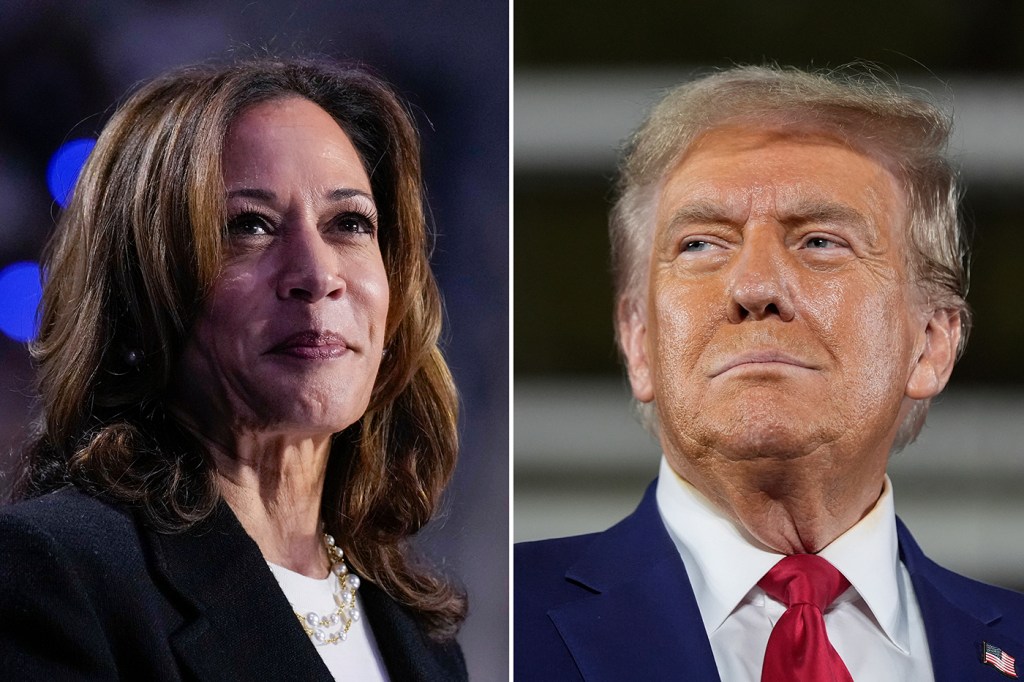Election 2024: Why Europe watched anxiously as Americans cast their ballots for president
Donald Trump swept to victory over Kamala Harris by winning key swing states. Northeastern international relations scholar Mai’a Cross breaks down how a Trump victory may impact U.S. foreign policy in Europe.

While voters cast their ballots for president across the United States Tuesday, the world was watching and waiting to see what the future would hold by way of U.S. foreign policy in Europe.
A Donald Trump victory — the Associated Press called the race for the former president before 6 a.m. Wednesday — will inject fear and uncertainty across the globe, says Mai’a Cross, dean’s professor of political science, international affairs and diplomacy, and director of the Center for International Affairs and World Cultures at Northeastern University.
Meanwhile, she says, a Harris administration would have brought a lot of policy continuity, a strong emphasis on NATO and signaled reassurance to our neighbors abroad.
“Her election would have signaled that the United States is still on the global stage, that it holds up norms associated with liberal internationalism, international cooperation, diplomacy and transparency,” Cross says of Kamala Harris. “It would have been politically and symbolically important.”
Tuesday capped what many have described as one of the most consequential election cycles in American history that saw a slew of headline-grabbing developments.
From President Joe Biden’s sudden exit from the race in July after a poor debate performance; Vice President Kamala Harris’ surprise debut at the top of the Democratic ticket in the days following; to two assassination attempts on Trump, the 2024 election has been a topsy-turvy affair.
The Associated Press called the election in the early hours of Wednesday morning. The Republicans also managed to flip the U.S. Senate, while the House remains in contention — and could be for weeks.
With at least 292 electoral votes, Trump secured victories in the key swing states of North Carolina, Georgia, Wisconsin, Pennsylvania and Michigan. Trump also held leads in Nevada and Arizona — victories that could push his electoral vote total to 312. Only 270 is needed to secure the presidency.
Unlike his victory in 2016, the former president also led the popular vote by nearly 5 million.
Featured Posts
Trump’s first term in office, by almost all accounts, represented a significant departure from the foreign policy posture of previous administrations, with shake-ups in trade agreements and forceful executive action, Cross says, and a second Trump presidency will create international concern.
“The biggest impact, besides the effect on Ukraine, would be for the Europeans, because Ukraine is a neighbor, it’s a candidate for NATO membership, and the EU would be left alone to support Ukraine,” Cross says. “This would happen very quickly.”
The stakes of a turnabout in Europe would throw NATO into crisis.
“We’re in this defining moment for Europe and the European Union in terms of security and defense,” Cross says.
Cross says it is within Trump’s power to unilaterally pull support for Ukraine, which she says would have an “immediate, damaging impact.”
Trump has repeatedly suggested that he could end the war in Ukraine by brokering a peace deal with Russian President Vladimir Putin. The details of one plan reportedly include Trump pressuring Ukraine to cede territory to Russia. Cross says she views Trump’s comments about a deal “overblown.”
“He thinks it’s just a matter of making deals,” she says. “But these aren’t about deals or bargaining, they’re about global norms and standards of interaction within the international system. You don’t bargain over that; there are principles at stake here.”
Russia’s 2022 invasion, and ongoing war in Ukraine, which took the whole continent by surprise, abruptly changed the calculus for European thinking about security and defense, as leaders realized there was “a real mismatch between defense capabilities and the situation on the ground,” Cross says.
That is because, she says, for decades the EU has focused on humanitarian work, peacekeeping and crisis management — efforts that shift the focus away from territorial defense.
“When you throw a radical shift in U.S. foreign policy into the mix, in the midst of this European effort to resolve the mismatch in terms of strategic plans, it’s a very, very difficult crisis for Europe,” Cross says.
Cross says that the mere prospect of a second Trump presidency has done some damage to the transatlantic alliance.
However, a Harris administration would have provided a renewed focus on the transatlantic alliance amid a continued pivot to Asia — a strategic shift in U.S. strategy that began during the Obama years toward China’s growing influence in the Indo-Pacific region.





